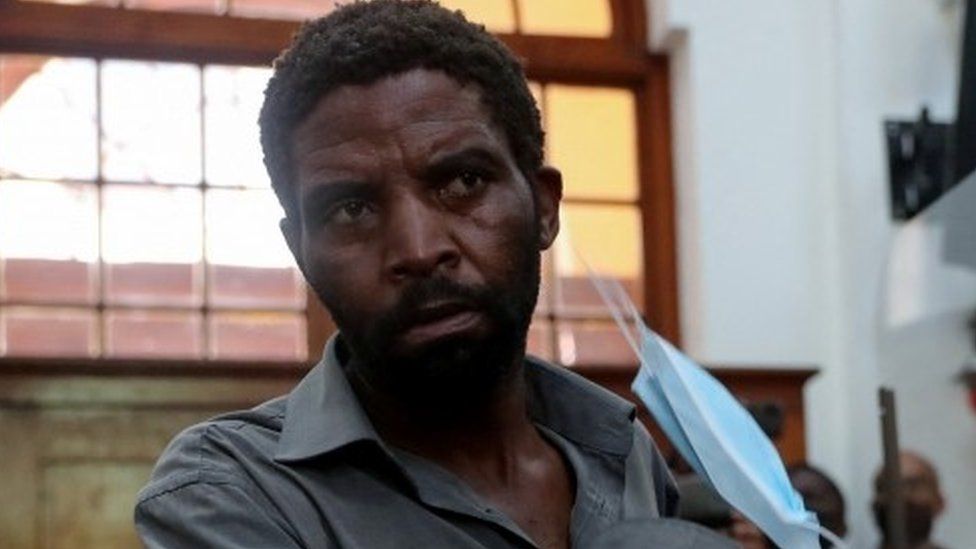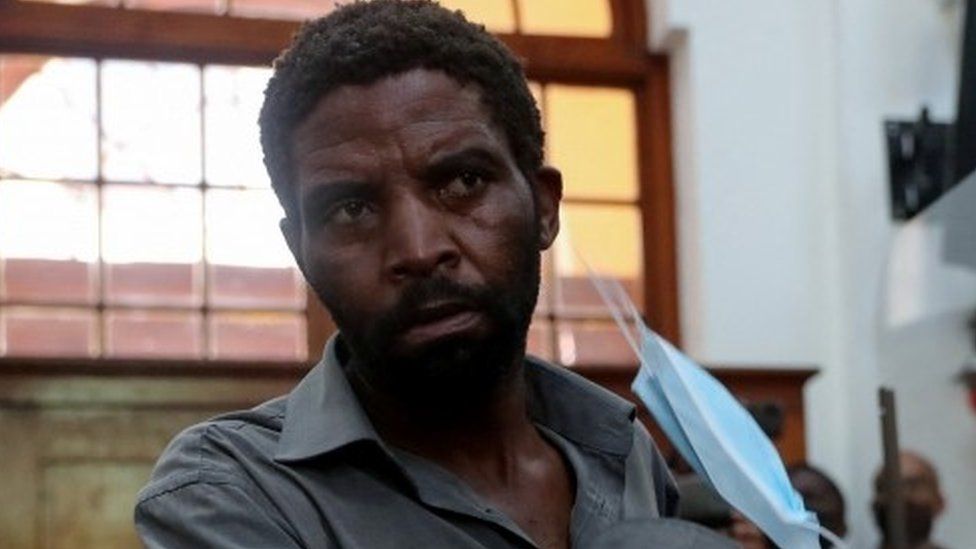South Africa parliament fire: Suspect ‘had explosives’

 IMAGE SOURCE,REUTERS
IMAGE SOURCE,REUTERSA man detained for torching South Africa’s parliament was caught with explosives, as well as stolen laptops and crockery, prosecutors have alleged.
Zandile Christmas Mafe, 49, appeared in a Cape Town court, for the first time since his arrest, on a raft of charges.
Mr Mafe’s lawyer said he was a “poor man”, and he denied all the charges.
Sunday’s fire totally destroyed the National Assembly, or lower chamber, and badly damaged other parts of the historic building.
No-one was injured in the blaze but it left the nation shocked.
Mr Mafe is the only person arrested in connection with the fire.
He looked unkempt and dazed in court, reports the BBC’s Nomsa Maseko from Cape Town.
As he arrived in the dock wearing shorts and a creased shirt, he removed his face mask and did a 360-degree turn as cameras flashed.
A spokesman for the National Prosecuting Authority said Mr Mafe was facing five charges:
- “House breaking” with intent to steal and theft
- Two counts of arson
- Possession of an explosive device
- Destruction of essential infrastructure.
Mr Mafe’s lawyer, Luvuyo Godla, said the wrong person had been detained and Mr Mafe was being made a “scapegoat”.
Police said Mr Mafe had been arrested within the parliamentary complex after the fire started on Sunday.
The case was postponed for seven days to allow police to continue with their investigations.
Firefighters say they have managed to contain the blaze that reignited on Monday.
Strong winds caused smouldering wood in the roof to catch fire again.
A video of Monday’s blaze has been posted on parliament’s Twitter account:
On Sunday, President Cyril Ramaphosa – who admitted the building’s sprinkler system had not functioned properly – praised firefighters for responding to the “terrible and devastating event” in minutes.
Government minister Patricia de Lille separately admitted that CCTV cameras had not been monitored at the time the initial fire started.
The parliament is not currently in session because of the holidays.
The building is home to thousands of treasures including historic books, photographs and important works of art, which officials said had been saved.
There had been particular concern that the valuable Keiskamma Tapestry, which is 120m (394ft) long, and documents South Africa’s history, might have been damaged or destroyed.
It is expected to be many months before the building can be used again.
Cape Town Mayor Geordin Hill-Lewis said the city’s council chamber would be made available as an alternative place for parliament to meet.





